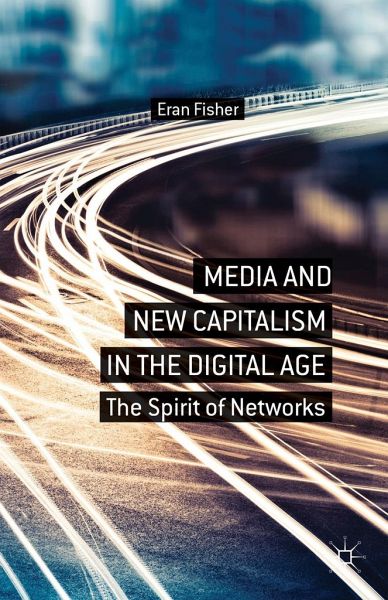
Media and New Capitalism in the Digital Age
The Spirit of Networks
Versandkostenfrei!
Versandfertig in 6-10 Tagen
38,99 €
inkl. MwSt.

PAYBACK Punkte
19 °P sammeln!
This book explores the new terrain of network capitalism through the transformations of the discourse on technology. Rather than viewing such discourse as either a true or false reflection of reality, Fisher evaluates the ideological role that technology discourse plays in the legitimation of a new form of capitalism. Based on an extensive empirical analysis, the book argues that contemporary technology discourse at one and the same time promises more personal empowerment through network technology and legitimates a more privatized, flexible, and precarious economic constellations. Such discou...
This book explores the new terrain of network capitalism through the transformations of the discourse on technology. Rather than viewing such discourse as either a true or false reflection of reality, Fisher evaluates the ideological role that technology discourse plays in the legitimation of a new form of capitalism. Based on an extensive empirical analysis, the book argues that contemporary technology discourse at one and the same time promises more personal empowerment through network technology and legitimates a more privatized, flexible, and precarious economic constellations. Such discourse signals a new tradeoff in the political culture of capitalism, from a legitimation discourse which emphasizes the capacity of technology and technique to bring about social emancipation (through equality, stability, and security) to a legitimation discourse which focuses on the capacity of technology to bring about individual emancipation (through individual empowerment, authenticity, creativity, and cooperation). Contrary to the prevailing assumption that sees network technology as liberating from the rigidity and pitfalls of a stifling, Fordist capitalism, the book offers a theoretical framework which sees contemporary technology discourse as an ideology that legitimates the economic, social, and political arrangements of the new capitalism.












